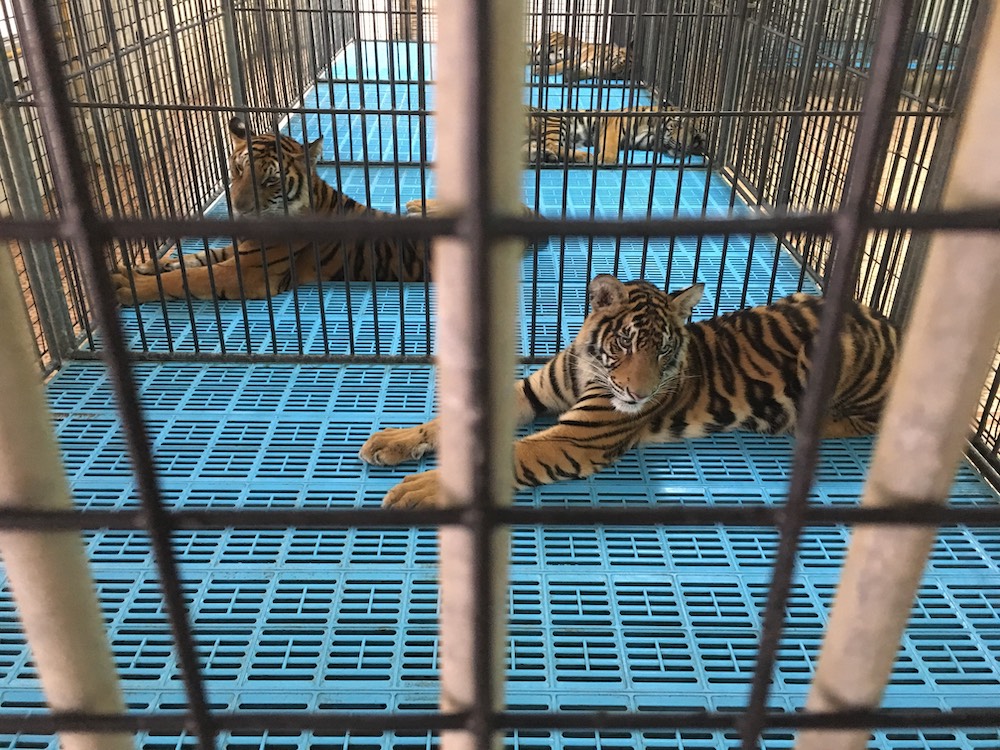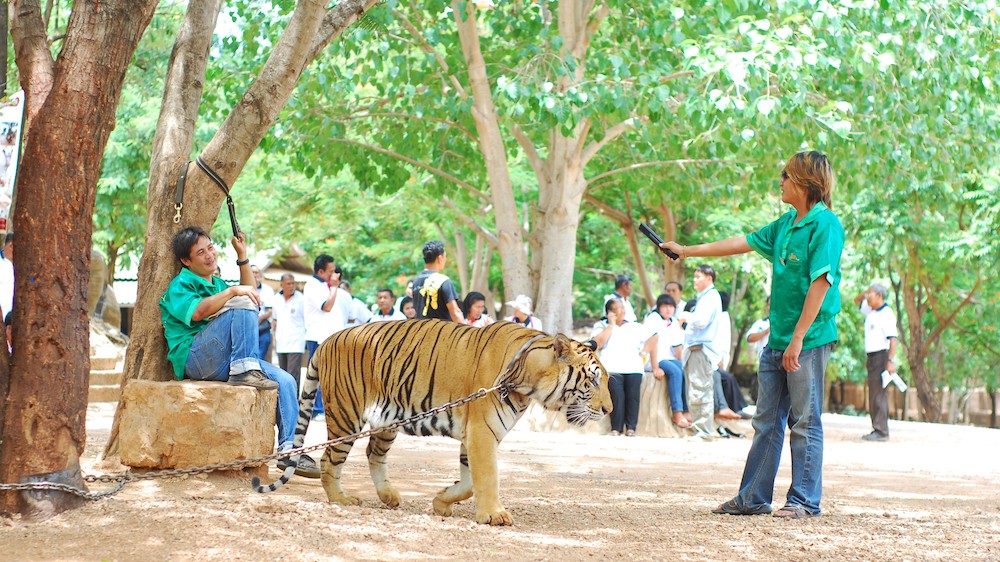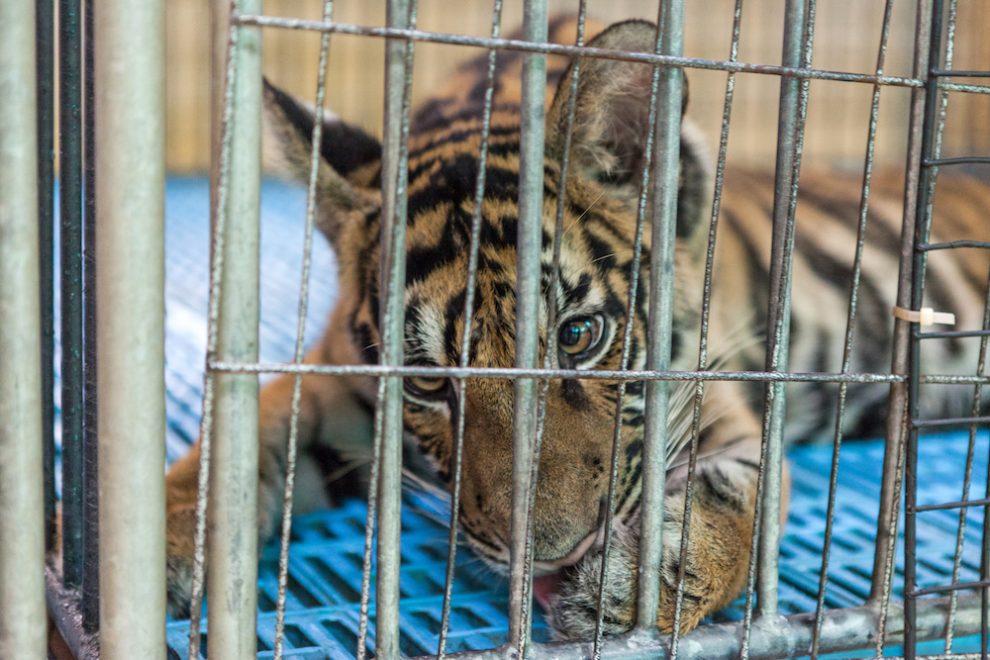Scroll through your social media feeds and it won’t be long before you come across tiger selfies. But one quick holiday snap can mean a lifetime of suffering for tigers. In time for International Tiger Day, World Animal Protection has released new research into consumer attitudes towards tiger selfies as a tourist attraction.
The charity surveyed respondents from Australia who have previously taken a selfie with a tiger, and the findings reveal an alarming lack of awareness among Australian travellers about the fate of the animals being used for tourism activities. Young tigers are used mostly for tourism interactions including selfies, but once they are adults, they could be sold for their body parts to the traditional Asian medicine trade.

READ MORE GREAT ARTICLES: Ethical Investments
Nearly half of all respondents (40 per cent) who had taken a tiger selfie said they did it because they love animals. Thirty-seven per cent say they didn’t think about what happened to the tiger afterwards and a staggeringly low 3 per cent thought the tigers would one day be traded for body parts. This indicates a widespread lack of awareness of the consequences of taking tiger selfies and shows the need for further education on the cruel trade of big cats.

Head of Campaigns at World Animal Protection, Ben Pearson said:
“This new research highlights that there is a gap in knowledge among the public on the reality of where these tigers end up once they are no longer needed for selfies. What happens to older tigers at venues is often questioned, but never satisfactorily answered.
“It does not make economic sense for venues to keep adult tigers for their whole lives if they cannot profit from them through tourist attractions. There are clear concerns that in Thailand and other tiger and big-cat keeping countries, the tourism market leads to the illegal trade of body parts or live animals.
“This International Tiger Day, World Animal Protection is urging travellers not to visit or support captive tiger cub activities. With increased public engagement in protecting wildlife from illegal trade, it’s hoped we will be able to curb the trade significantly.”
Earlier this month, World Animal Protection unveiled its first ever global multiple country examination of the supply chain feeding the insatiable demand for big cat products, such as tiger bone wine and traditional medicines. As wild tiger populations have declined drastically, traffickers and retailers have turned to captive-bred tigers at tourism venues and other big cat species to meet the demand for these products.
While the consumer attitudes research shows some worrying trends, there are also some promising results. Only 20 per cent say they would take a selfie again, the majority of respondents (57 per cent) said they wouldn’t and 23 per cent were undecided.
World Animal Protection works tirelessly to prevent cruelty to animals around the world. Last year, it also found that jaguars were being poached in South America to fuel the traditional Asian medicine trade, and it has been cooperating with partner organisations to prevent this.






















Add Comment